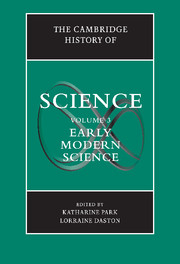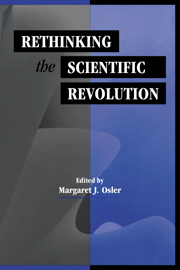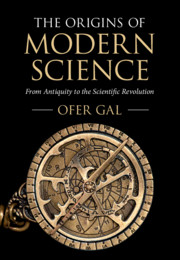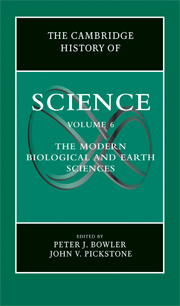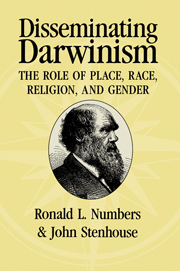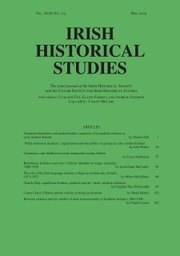The Cambridge History of Science
This book provides a comprehensive account of knowledge of the natural world in Europe, c.1500–1700. Often referred to as the Scientific Revolution, this period saw major transformations in fields as diverse as anatomy and astronomy, natural history and mathematics. Articles by leading specialists describe in clear, accessible prose supplemented by extensive bibliographies, how new ideas, discoveries, and institutions shaped the ways in which nature came to be studied, understood, and used. Part I frames the study of 'The New Nature' in the sixteenth and seventeenth centuries. Part II surveys the 'Personae and Sites of Natural Knowledge'. Part III treats the study of nature by discipline, following the classification of the sciences current in early modern Europe. Part IV takes up the implications of the new natural knowledge for religion, literature, art, gender, and European identity.
- The most comprehensive and in-depth account of the knowledge of nature in early modern Europe available in English
- The combination of clear prose and extensive bibliographies make the articles accessible to students, scholars, and specialists
- Transforms the traditional understanding of the Scientific Revolution by broadening the range of people, sites and activities associated with it
Reviews & endorsements
"This book is an excellent source for current thinking on Early Modern Science. The chapters are writtten by the leading shcolars n their respective fields. This book, along with the rest of the Cambridge History of Science series, belongs in all academic and large public libraries." - American Reference Books Annual
"The real value of the volume, in my eyes at least, is its contribution to _early modern_ history...The breadth and range of the volume is breathtaking and, hard as I tried, I could think of little that was lacking... virtually the entire social and cultural panorama of early modern society receives intelligent and sophisticated coverage...it should be mandatory reading for every early modernist, no matter his or her particular scholarly orientation." - H-German
"Individually the contributions to this volume are thoughtful, well-researched summations of the state of the art in their specific topical areas. As such they constitute a useful disciplinary resource for teachers but also mark the way for the next generation of extensions, revisioins and syntheses." - Jole Schakelford, University of Minnesota
"...a short review cannot do justice to the breadth of the individual essays or the volume as a whole. This work is as comprehensive as humanly possible on such a various, wide-ranging subject, and it would be unfair to mention lacunae." - Sixteenth Century Journal
Product details
July 2006Hardback
9780521572446
894 pages
232 × 163 × 60 mm
1.34kg
Available
Table of Contents
- List of illustrations
- Notes on contributors
- General editors' preface
- Acknowledgments
- 1. Introduction: the age of the new Katharine Park and Lorraine Daston
- Part I. The New Nature:
- 2. Physics and foundations Daniel Garber
- 3. Scientific explanation Lynn S. Joy
- 4. The meanings of experience Peter Dear
- 5. Proof and persuasion Richard W. Serjeantson
- Part II. Personae and Sites of Natural Knowledge:
- 6. The man of science Steven Shapin
- 7. Women of natural knowledge Londa Schiebinger
- 8. Markets, piazzas, and villages William Eamon
- 9. Homes and households Alix Cooper
- 10. Libraries and lecture halls Anthony Grafton
- 11. Courts and academies Bruce T. Moran
- 12. Anatomy theaters, botanical gardens, and natural history collections Paula Findlen
- 13. Laboratories Pamela H. Smith
- 14. Sites of military science and technology Kelly DeVries
- 15. Coffeehouses and print shops Adrian Johns
- 16. Networks of travel, correspondence, and exchange Steven J. Harris
- Part III. Dividing the Study of Nature:
- 17. Natural philosophy Ann Blair
- 18. Medicine Harold J. Cook
- 19. Natural history Paula Findlen
- 20. Cosmography Klaus A. Vogel (translated by Alisha Rankin)
- 21. From alchemy to 'chymistry' William R. Newman
- 22. Magic Brian P. Copenhaver
- 23. Astrology H. Darrel Rutkin
- 24. Astronomy William Donahue
- 25. Acoustics and optics Paolo Mancosu
- 26. Mechanics Domenico Beroloni Meli
- 27. The mechanical arts Jim Bennett
- 28. Pure mathematics Kirsti Andersen and Henk J. M. Bos
- Part IV. Cultural Meanings of Natural Knowledge:
- 29. Religion Rivka Feldhay
- 30. Literature Mary Baine Campbell
- 31. Art Carmen Niekrasz and Claudia Swan
- 32. Gender Dorinda Outram
- 33. European expansion and self-definition Klaus A. Vogel (translated by Alisha Rankin)
- Index.

